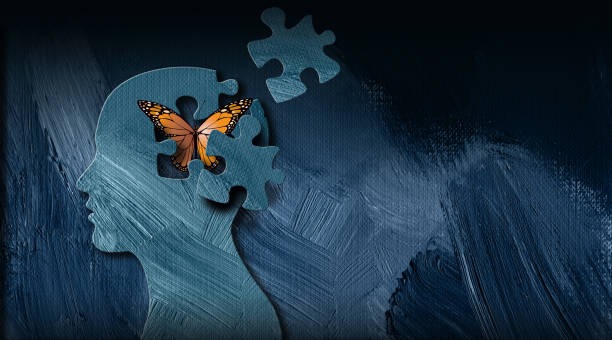What Does Healthy Mental Health Look Like?
Mental health isn’t about being happy all the time, t’s about resilience, balance, and emotional well-being. In this blog, we explore the key signs of healthy mental health, including emotional awareness, stress management, supportive relationships, self-acceptance, and maintaining a fulfilling lifestyle. Learn how therapy and coaching can help you develop the tools to navigate life’s challenges with strength and confidence. Good mental health is a journey, not a destination, start building the foundation for your well-being today!
All In Health
1/15/20253 min read


Mental health is just as important as physical health, yet many people don’t recognize what healthy mental health actually looks like. It’s not about feeling happy all the time or avoiding stress completely—it’s about resilience, balance, and emotional well-being. So, what are the signs of healthy mental health, and how can we cultivate it in our daily lives?
1. Emotional Awareness and Regulation
Having healthy mental health means understanding your emotions and managing them effectively. It’s okay to feel sad, angry, or anxious—what matters is how you cope with these feelings. Signs of emotional well-being include:
Recognizing emotions without feeling overwhelmed.
Expressing feelings in a healthy way (talking, journaling, creative outlets).
Practicing self-compassion instead of self-criticism.
How Therapy or Coaching Can Help:
A therapist can help you process emotions, recognize patterns, and develop healthy coping mechanisms, while a coach can guide you in building emotional resilience and setting personal goals for emotional well-being.
2. Ability to Cope with Stress
Stress is a part of life, but how we handle it makes all the difference. People with good mental health develop healthy ways to manage challenges rather than avoiding or numbing stress with harmful habits. Healthy coping strategies include:
Practicing mindfulness or deep breathing.
Setting boundaries to prevent burnout.
Engaging in activities that bring joy and relaxation.
How Therapy or Coaching Can Help:
Therapists provide tools like CBT (Cognitive Behavioral Therapy) to reframe negative thoughts and manage stress. Coaches can help identify stressors, create action plans, and hold you accountable for self-care practices.
3. Positive and Supportive Relationships
Humans are wired for connection, and strong, healthy relationships contribute to mental well-being. A good support system can provide encouragement, perspective, and emotional safety. Healthy relationships are:
Built on mutual respect and trust.
Supportive rather than draining.
Based on open and honest communication.


How Therapy or Coaching Can Help:
Therapy can help you recognize unhealthy relationship patterns and build healthier connections. Coaching can assist in communication skills and boundary-setting to maintain supportive relationships.
4. Self-Acceptance and Growth Mindset
Healthy mental health includes accepting yourself—flaws, strengths, and all. It also means being open to growth and learning rather than striving for perfection. Signs of self-acceptance include:
Acknowledging mistakes without self-shaming.
Setting realistic goals and allowing room for growth.
Embracing challenges as opportunities to learn.
How Therapy or Coaching Can Help:
A therapist can help uncover past experiences that impact self-worth, while a coach can help you build confidence and shift toward a growth mindset.
5. Healthy Lifestyle Choices
Our mental and physical health are deeply connected. Taking care of your body supports your mine. This includes:
Eating nutritious foods that fuel your body and brain.
Engaging in regular movement or exercise.
Prioritizing rest and maintaining a healthy sleep routine.
How Therapy or Coaching Can Help:
A therapist can address barriers to self-care, such as depression or anxiety, while a coach can help create actionable steps to build lasting, healthy habits.
6. Purpose, Meaning, and Fulfillment
Feeling a sense of purpose contributes to overall well-being. This doesn’t mean you need a perfect life plan, but rather, finding things that give your life meaning. Ways to cultivate purpose:
Engaging in hobbies or passions that bring joy.
Helping others through acts of kindness or service.
Setting personal goals that align with your values.
How Therapy or Coaching Can Help:
Therapists can help explore deep-seated beliefs that may be blocking your sense of purpose, while coaches can assist in goal-setting and guiding you toward a fulfilling path.
Mental Health is a Journey
Good mental health isn’t about never struggling—it’s about developing the tools to navigate challenges with strength and resilience. Therapy and/or coaching provide valuable support to help you build emotional awareness, manage stress, improve relationships, and create a fulfilling life. If you’re struggling, remember that seeking help is a sign of courage, not weakness. Whether through therapy, coaching, or personal growth strategies, you deserve the support needed to thrive.
